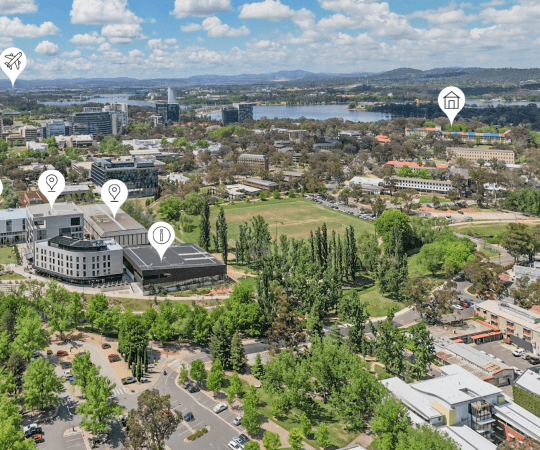
Higher Education Monthly
How to find a reputable design agency to work with and how to avoid all the others.
Chefs cook, salespeople sell, designers design. But everything isn’t simply black and white.
Every chef can cook but only a select few create award-winning food. Every salesperson can close a deal but only the high flyers would exclusively deal in trades over $1 million dollars. Likewise designers design, but not all are capable of producing high quality work.
And that is becoming a common problem.
There are so many ‘design firms’ out there offering their services, how do you know who to approach or who’s in it for a quick buck?
The old saying ‘you get what you pay for’ is absolutely correct. A recent meeting with a potential client revealed that they had first engaged a well-known national company for its design services. Their solution that was embarrassingly poor for a company that claims to ‘bring creative ideas to life’.
But maybe the disgruntled client should have initially sensed something was amiss — there were no visual examples of work on the company’s website! Why would a company offering visual services have no examples of their work online? A reputable design firm would willingly show off their work.
Understandably the lack of trust for the client was now an issue. Who should they believe? Who should they approach? Who is credible?
A very crowded marketplace has begun to reveal some clear indicators that suggest some agencies talk the talk but don’t necessarily walk the walk. Embracing phrases and buzzwords from a decade ago is still common practice.
Pledges like ‘value-for-money’, ‘tailored design solutions for you’ and ‘a leading agency’ initially seem very tempting but these claims are so abundant and overused they now seem trivial and a little implausible. Waffling on about making your vision a reality is too dreamy and not specific enough for modern day business.
Likewise, a ’boutique agency’ suggests ‘just another generic design agency’; ‘design solutions tailored to meet your needs’ suggests a solution that won’t really push the boundaries of design; ‘we came up with this exciting design’ suggests a stab in the dark solution with no foundation to it; ‘take the stress out of your next project’ suggests the total opposite and getting ‘a free 2 hour marketing health check’ suggests a very superficial outcome.
And surely, claims like ‘design is our passion’ and ‘we care about the quality of our work’ should be a given rather than a unique selling point (USP).
Everyone is giving you ‘a competitive edge’, ‘are 100{c2bc4dcc82a24c7a0a4780d09ca51e05a889725c4a6e53b8bbcdcdf364f60b87} approachable’ and ‘love what they do’. And who isn’t ‘the friendliest agency in town’?
Company newsletters featuring New Years’ resolutions, film reviews and recipes seem futile too when all potential clients actually want is help with their brand.
And it goes on and you end up becoming bogged down in repetitive idioms and useless information.
So how do you find the wheat?
As a client looking for an agency, it’s now about scratching well below the surface. Don’t just go by what is on their website, start a conversation with them. And if it’s determined there is a good fit between both parties, that is the beginnings of a good working relationship — open, honest and trustworthy.
A well-respected design firm will always talk about strategy, partnerships, being unique and being an expert. They will say ‘no’ a lot, a clear indication that they are not afraid to pushback when necessary.
Another big indicator is a good agency will educate their clients (usually for free) by offering advice, opinion and guidance so the client has a better understanding of the depth of knowledge they have.
The irony is that while many design companies are telling their clients to ‘stand out from the crowd’, they themselves aren’t because they don’t know how too. And if they can’t, how will they make you look different from your competitors?
Get rid of the chaff early and your experience with a design firm will be all the more fruitful.







